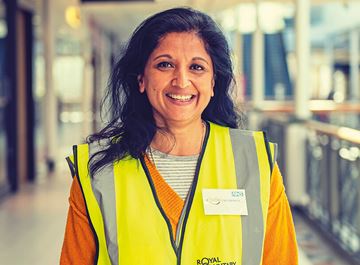
Social Mobility: Unleashing the Power of Volunteering
Report 2 examines motivations, attitudes, benefits, routes and barriers to volunteering, and discusses the implications for civic life and society.
Take me thereThis first report in the Kickstarting a New Volunteer Revolution series sets out to understand more about why people decide to volunteer for the first time, or after a significant break – their motivations, routes in, ambitions, benefits and challenges, the support they receive (or don’t) and what more could be done to encourage others like them to get involved. It is focused on formal volunteering, broadly defined as giving unpaid help to any group, club or organisation.
The findings reinforce what other studies have shown, that the UK is a generous nation, with almost six in ten (56%) adults over the age of 18 having volunteered at some stage in their lives.(1) However, in contrast to other recent studies, it suggests that a significant proportion of the population (44%) have never been involved, meaning that there is a pool of over 22 million potential new recruits.(2)
Volunteering was found to be closely associated with economic status, with 34 percent of people from the highest socio-economic groups never having volunteered, compared with 56 per cent of individuals from the lowest groups. The report suggests that the main reasons why people don’t volunteer are the pressure of work, never having thought about it, and having other demands on their free time. First timers and other volunteers exhibited similar motivations to get involved, with a rich mix of altruism and self-interest. However, new volunteers were more positive about the potential benefits of engagement, reporting that their experience left them, feeling happy, useful and fulfilled, less stressed, and more connected to their local community.
There is some evidence that volunteers are responding to rising need, with a third of first timers saying their decision to volunteer was influenced by cuts to local services. The two biggest areas of future need for volunteers were identified as supporting the NHS and older people. Drawing on these findings, the report makes a series of recommendations to organisations for reaching out to first time volunteers, including making it easier for people to get involved, developing more flexible and micro opportunities, reinforcing the benefits of volunteering, including social connectivity, and doing more to attract the ‘young old’ through such innovations as family volunteering. It also calls for a new partnership between the public services and the volunteer movement to build a stronger bond between state and community.
Our research report series includes the following reports:

Report 2 examines motivations, attitudes, benefits, routes and barriers to volunteering, and discusses the implications for civic life and society.
Take me there
Report 3 sets out how boosting civic participation can tackle health inequalities.
Take me there
Report 4 sets out to explore the contribution of volunteering to social care.
Take me thereWe're always happy to share our experiences and discuss new ways we could work together in partnership in the NHS and in the community.